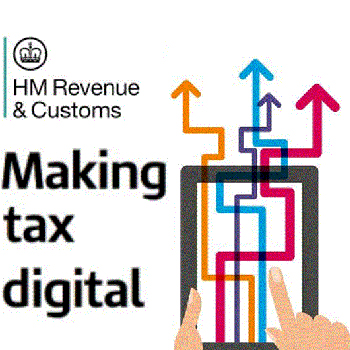As an accountancy firm, we are always looking to keep our clients informed about the latest tax changes that may affect them. One significant development coming April 2026/2027, is the implementation of Making Tax Digital for Income Tax Self-Assessment (MTD for ITSA). If you’re a landlord or sole trader earning over £30,000 in business or property income, this is something you’ll need to be prepared for. But don’t worry, we’re here to go through the details with you.
Who will be affected by MTD for ITSA?
MTD for ITSA will affect landlords and sole traders who have business or property income exceeding £30,000. This new initiative will be introduced in phases:
- From April 2026, businesses with income exceeding £50,000 will need to comply.
- From April 2027, those with income over £30,000 will also need to follow the rules.
This phased approach will give businesses and landlords time to adapt, but it’s essential to start preparing now to ensure a smooth transition.
What is MTD for ITSA?
MTD for ITSA is part of the government’s ongoing efforts to modernise the tax system. The aim is to reduce errors in tax submissions, as the UK’s tax gap for Self-Assessment businesses is estimated to be around £5 billion. The idea is that by using digital tools for record keeping and quarterly updates, businesses will be able to file their tax information more accurately and more efficiently.
For MTD for ITSA, businesses and landlords will be required to:
- Keep digital records of their income and expenses.
- Submit quarterly updates to HMRC using compatible software.
- Provide their year-end return information via digital software.
Why is Making Tax Digital being introduced?
The government is introducing MTD for ITSA to reduce the tax gap, the difference between what should be collected and what is actually paid. Currently, around 18.5% of self-assessment taxes are not paid due to errors. Digital record-keeping and regular updates to HMRC have been shown to reduce these errors, improve business productivity, and streamline tax processes.
Additionally, MTD aligns with the global shift towards digitalisation in tax systems. Several countries around the world, have implemented similar measures to modernise tax reporting and improve the accuracy of data.
What does this mean for businesses and landlords?
For those affected, the main change will be the need to digitalise records and submit quarterly updates. While this may seem daunting at first, there are many benefits to the new system:
- Reduced risk of errors – Digital records reduce human error and the risk of missing key information.
- Time-saving – Quarterly updates can simplify the end-of-year process and reduce the amount of time spent on tax-related admin.
- Improved compliance – Regular updates will help businesses stay on top of their tax obligations and avoid surprises at the end of the year.
- Better customer service from HMRC – MTD will enable HMRC to offer tailored services to businesses, improving overall experiences.
Why hiring an accountant helps with MTD for ITSA compliance
With the introduction of Making Tax Digital for Income Tax Self-Assessment (MTD for ITSA), hiring an accountant is a smart decision to keep your business compliant and save valuable time. Here’s how an accountant can assist:
1. Expert advice
Accountants know all the rules around MTD for ITSA and can guide you through things like income limits, quarterly updates, and digital record-keeping.
2. Choosing the right software
Your accountant will help you pick the best MTD-compatible software for your business to make tax reporting easier.
3. Easy record-keeping
They’ll help you organise and digitise your financial records, making it easier to update them every quarter and reducing the risk of errors.
4. Quarterly updates
An accountant will take care of your quarterly submissions to HMRC, ensuring everything is filed on time and correctly.
5. Tax Savings
Accountants can help you find eligible expenses and reliefs, making sure you don’t miss out on potential tax savings.
6. Ongoing Support
They’ll keep you updated on any changes to MTD rules, so your business stays compliant.
7. Peace of Mind
With an accountant looking after your tax, you can focus on growing your business without worrying about compliance.
Preparing for MTD for ITSA
As the UK moves towards a fully digital tax system, Making Tax Digital for ITSA will play a significant role in simplifying tax reporting for landlords and sole traders. While the transition may involve some initial adjustments, the long-term benefits of reducing errors, improving productivity, and making tax compliance easier will make it worth it.
By preparing early and embracing digital tools, you can ensure your business stays ahead of the upcoming changes. If you’re affected by the new requirements, now is the time to start planning.
Future Cloud is here to help you through these changes, ensuring you remain compliant and make the most of the benefits that MTD for ITSA offers.
Get in touch if this is something you need assistance with or have any concerns about.
And don’t forget to follow us on social media for the latest updates, tips, and more!


